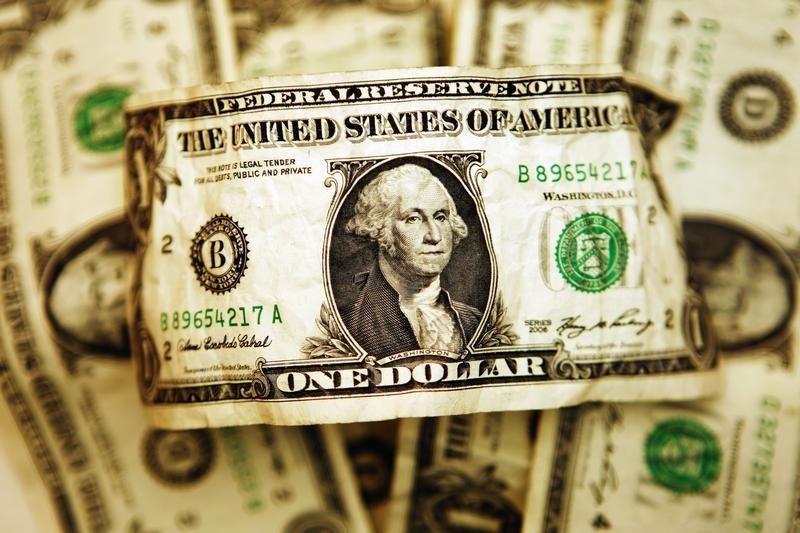By Peter Nurse
Investing.com - The dollar edged higher in early European trade Friday, continuing to benefit from Wednesday’s surprise move by the Federal Reserve in bringing forward its timetable for raising interest rates.
At 2:55 AM ET (0755 GMT), the Dollar Index, which tracks the greenback against a basket of six other currencies, traded less than 0.1% higher at 91.933, after earlier hitting a more than two-month high above 92. The index is on course for a weekly gain of 1.5%, its largest since September.
USD/JPY dropped 0.1% to 110.06, after climbing to a 11-week high of 110.82 on Thursday, EUR/USD was largely unchanged at 1.1906, just above a two-month low, GBP/USD was down 0.1% at 1.3904, around a six-week low, and the risk-sensitive AUD/USD was down 0.2% at 0.7536, near a two-month low.
The dollar is still reaping the rewards of the U.S. Federal Reserve, the country’s central bank, taking a more hawkish stance than expected and planning for two interest rate increases of 25 basis points in 2023, a year earlier than expected.
This represented an abrupt change from the previous meeting when none of these officials were looking for hikes during that year. Additionally, Fed chief Jerome Powell indicated that the members of the Federal Open Market Committee had begun the conversation on stopping the bank’s massive bond-buying program.
These moves suggest to the market that the days of readily abundant liquidity are drawing to a close.
“ We think tapering is likely to be telegraphed at the Jackson Hole Symposium in late August, with a formal announcement coming at the September FOMC meeting, and an actual tapering of purchases taking place in Q4,” said analysts at ABN Amro, in a note.
Earlier Friday, the Bank of Japan kept its key interest rates unchanged, as expected, and decided to extend by six months the September deadline for its programs to help pandemic-hit firms.
Japan's economy is struggling to rebound from the measures put in place to combat the virus, after gross domestic product fell an annualised 3.9% in the first quarter.
Core consumer prices rose 0.1% in May from a year earlier, the first year-on-year increase since March 2020 but still far removed from the central bank's 2% goal.
On Thursday, the Swiss National Bank, Turkey’s central bank and the Norges Bank all kept interest rates unchanged, with the Norwegian central bank signalling a raise in September as its economy recovers more quickly than most of its peers.
